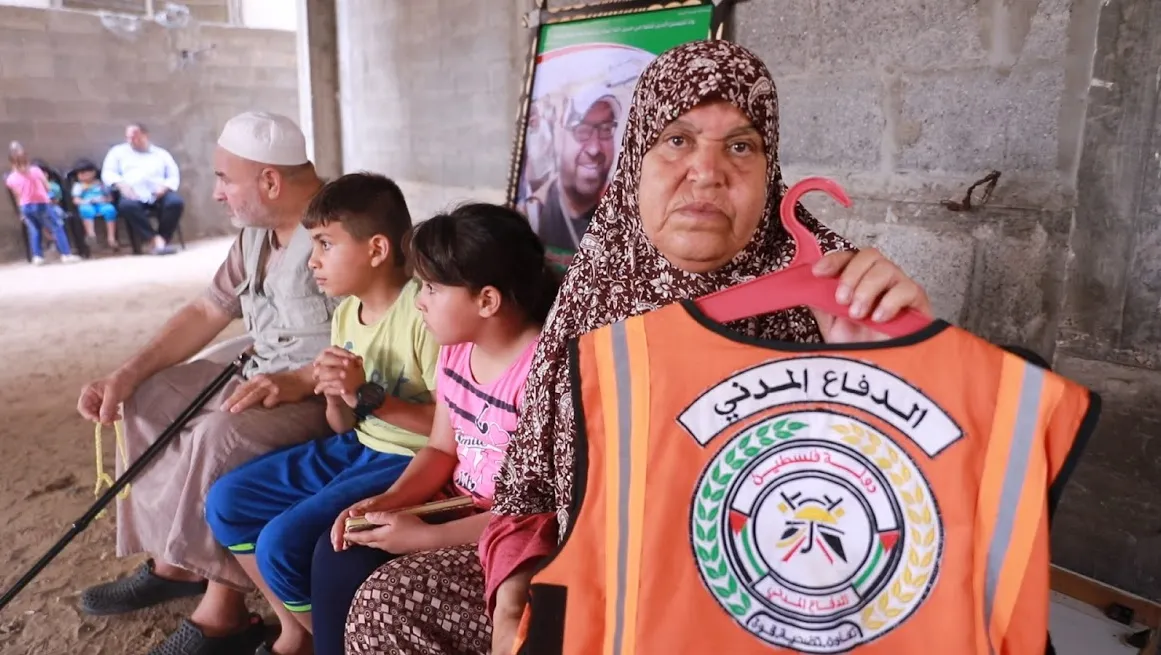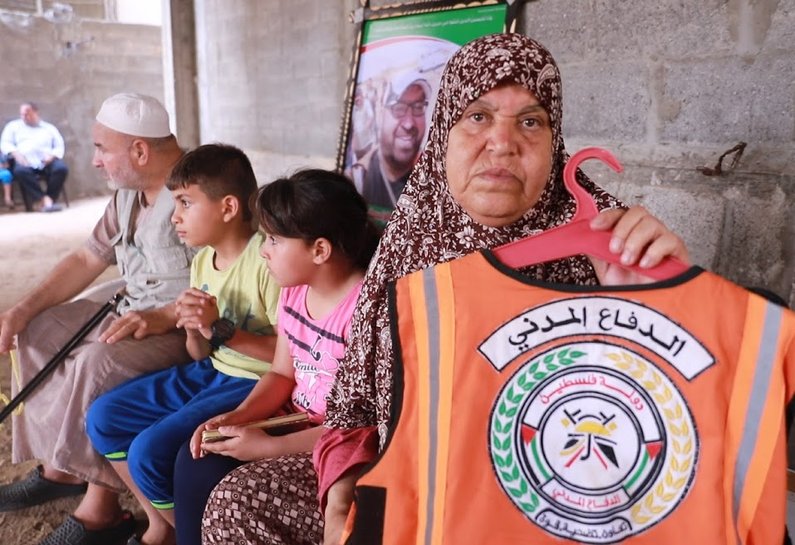Remembering paramedic Musa: The Great March of Return’s deadliest day two years on
14 May 2020


MAP’s Director of Programmes, Dr Andy Ferguson, was at Al Shifa Hospital, Gaza’s largest, that day. “Despite 12 theatres working flat out throughout the afternoon and evening, at 10pm there were still 70 major orthopaedic cases waiting for surgery – most of those with gunshot wounds. By 8am the following morning, 40 of these were still waiting, many in agony due to the unavailability of sufficient pain medications. Even basic supplies – gauze, syringes, surgical gowns – were running out.”
Medical teams in Gaza also came under attack. Among the casualties, was Musa Abu Hassanin, a 34-year-old paramedic, who was fatally shot by Israeli forces while trying to evacuate wounded demonstrators.
The 2019 UN independent Commission of Inquiry found that Musa was 250-300 metres from the Gaza perimeter fence and was wearing a high visibility Civil Defence vest. He was the first of at least three health workers killed and 845 injured at the protests. No criminal investigation has been announced by the Israeli authorities into Musa’s death.
Shortly before his death, Musa helped rescue a member of his team, Tarek Loubani, a Canadian Palestinian doctor, who had been shot in both legs while also working at the protests:
“Musa’s my rescuer. He was a very bright guy. Incredible man. About an hour after he rescued me, he was trying to get another patient, and ended up getting shot in the chest. Unfortunately, he died. It’s unfortunate because we, as a medical team, always hope for and expect some protection.”
Musa’s elder brother, Mahdi Abu-Hassanin, told MAP: “Musa was a beautiful human being by all means. He chose to be a paramedic because he cared about others. He always strived to alleviate the suffering of others. Everyone who knew Musa would describe him as the man with the best sense of humour. Musa loved life and wanted others to feel the same.
“During the Israeli war on Gaza in 2009, Musa was critically injured. As a paramedic with the Civil Defence he went inside a bombarded building to save people, but the Israelis shelled the building again while he was inside it. Musa never fully recovered from his wounds. He was unable to play football again after having been a strong candidate to play for the Palestinian national team, as he suffered from continuous shortness of breath.
“In May 2018, Musa was a father of four children, the oldest was seven years old, and the youngest was two months old at that time. Ramadan started a few days after Musa’s death. Musa’s wife had to sit at the table with her four kids and explain why their father was not present. I have to spend the rest of my life without my closest brother.”
Musa’s colleague, Shafeq Salem, was with Musa on 14 May 2018. Shafeq told us: “It was the most intense day of the weekly demonstrations. Starting from 09:30, we were receiving two injuries every minute. At 13:20, the intensity of the fire was indescribable. Tens of people were wounded or killed within seconds. Then I heard people screaming saying that a paramedic had been shot. I then saw Musa, a few metres away, on the ground. I was lying down on the floor to avoid the bullets. I could not reach Musa. I immediately asked for medical help using the radio. But none of the medical teams or ambulances was able to enter the area.”
Another paramedic with Musa, Alaa’ Abu Ghanye, told MAP: “The bullet hit Musa in the shoulder and exited through his back. The only thing we could do as paramedics was stop the bleeding. Musa’s mum [who was attending the protests that day] heard that her son was shot. She was screaming “my son is a paramedic can’t you get him an ambulance?”
“From the moment Musa was hit, I knew we’d become a target. We managed to stop the external bleeding. He was conscious. He kept saying that he couldn’t breathe. Musa was left on the floor for 30 minutes with no medical evacuation. Then with the help of the people around us we carried Musa on our shoulders and ran until we saw a civilian car. He kept whispering that he couldn’t breathe. A few minutes later his eyes rolled over. We reached the Indonesian hospital, which was four kilometres away, at around 14:30, where Musa was pronounced dead. Musa’s mum witnessed her son bleed to death. Musa was always the one saving lives. But when his life was at risk, no one was able to save him.
“Most probably Musa’s family won’t get justice, and the case won’t be investigated.”
This originally appeared in our new report, Chronic Impunity: Gaza’s Health Sector Under Repeated Attack. Read more below:
To read more on MAP’s specialist work on complex limb reconstruction in Gaza, click here.